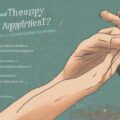Understanding Cherophobia
Cherophobia refers to the irrational fear of happiness or being happy. For some people, feelings of joy and contentment trigger anxiety instead of positive emotions. They may unconsciously sabotage good things in their lives or feel like they don’t deserve to be happy.
Causes of Cherophobia
There are a few potential causes of cherophobia:
- Trauma – Past traumatic events can condition people to associate happiness with impending doom.
- Low self-esteem – Those with negative self-talk may feel unworthy of happiness.
- Perfectionism – Perfectionists set impossibly high standards, making happiness fleeting.
Overcoming the Fear of Happiness
- Seek counseling to understand the root causes of your fears.
- Practice self-compassion and positive affirmations.
- Set realistic standards for yourself.
- Take small steps to increase happiness through self-care.
- Surround yourself with supportive people.
Living a Happier Life
With professional help, self-reflection, and gradual exposure, those suffering from cherophobia can overcome their fears. While it takes time and effort, you can learn to accept happiness and lead a more joyful life.
FAQ
What are the symptoms of cherophobia?
Common symptoms include anxiety when good things happen, self-sabotaging behaviors, and feeling undeserving of happiness.
What causes someone to fear being happy?
Causes include past trauma, low self-esteem, perfectionism, anxiety disorders, and depression.
How do you cure the fear of happiness?
Seeking counseling, practicing self-love and self-care, setting realistic standards, and surrounding yourself with supportive people can help overcome cherophobia.
Can therapy help with the fear of happiness?
Yes, therapy with a psychologist or counselor who specializes in anxiety, trauma, self-esteem issues, and cognitive behavioral therapy can help address the root causes and rewire fearful associations with happiness.
What happens if you never allow yourself to be happy?
Avoiding happiness long-term can lead to increased anxiety and depression, strained relationships, physical health issues, a diminished quality of life, and an unfulfilling existence.









